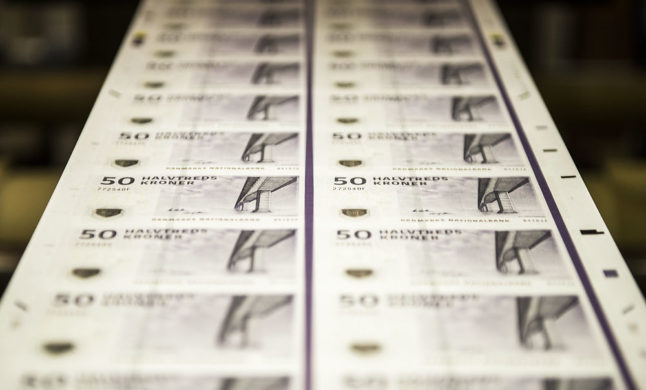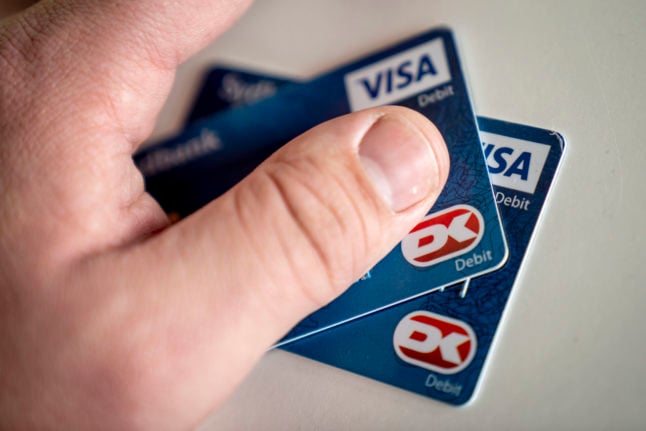An EU report found that Denmark was the most expensive country in European Union, with prices 41 percent higher than average, according to the report from the EU’s statistics agency Eurostat.
Denmark has also been reported to be the most expensive country for food and drink products (excluding alcoholic drinks) in the EU, according to Statistics Denmark calculations in 2019. Danish prices for food and drink are around 30 percent higher than the EU average.
Denmark has also rated as the union’s priciest country for consumer goods.
In short, it can be an expensive place for foreigners to live.
So what can be done to limit everyday costs? We asked our readers for their tips.
Supermarkets and apps
“Going very early or very late to the supermarket is a great option. In general, supermarkets here have cheaper items in the beginning and end of the day because are items that are about to expire,” wrote Maria, who lives in Aarhus.
Up to 50 percent savings can be made on some products this way, according to Maria.
“Another tip is to download an app with the supermarket newspapers. Then I can check which supermarket has the best offer and I try to adapt what I am going to eat in the week with what it is on sale in that week,” she added.
“There is an app, eTilbudsavis, where you can follow all the offers from stores nearby in the current week,” wrote Andreea Paiu, of Odder.
Lidl and Aldi were mentioned consistently by readers as the best supermarkets to pick up food at cheaper prices than competitors.
Another app, Too Good To Go, was recommended by two readers. The app, which is designed to reduce food waste, enables users to find surplus products which are close to their use-by dates and purchase them at highly discounted prices.
Cycling and home haircuts
Transport, food and other commodities are all areas in which savings can be had with the right approach, another reader said.
“Ride a bike instead of taking the bus, eat less meat and cheese, go to ‘byttemarkeder’ (swap shops) and thrift shops, give each other haircuts. I went to uni in Denmark and this was a regular thing, haircuts are expensive!”, wrote Australian Beth Browse, who has lived in Roskilde and Aarhus.
“For personal hygiene products I buy in Normal because they are cheaper,” wrote Paula Paez, a Copenhagen resident.
It’s also worth noting that many businesses in Denmark offer discounts for students if you show ID.
“You can save a lot of money if you’re a student. Denmark is very student-friendly and if you show your student card, you end up paying 20 kroner instead of 40 kroner for a beer,” wrote Klaudia Alexandra Orfin, who also lives in the Copenhagen area.
Second-hand trading
Second-hand trading website dba.dk – comparable to a Danish eBay – is used by a number of the readers who contacted us with money-saving advice.
Electronics and furniture are particularly worth seeking out on the site, wrote Ecaterina Capatina of Aarhus.
Local Facebook groups were mentioned as a similarly good resource for buying second-hand as well as picking up items for free.
Is anything actually cheap?
Clothes, shoes, mineral water, nuts, eating out and buying and running cars were among things readers said they avoided spending money on in Denmark due to their expense, although others said they found ways. Going to the cinema was noted as a particularly expensive leisure activity.
Cigarettes, telecommunications, gym memberships, sporting activities for children and fuel were cited as normally-expensive commodities that are cheaper in Denmark relative to their level of expense in other countries.
Outside fitness training facilities like pull-up frames can be found in many parks and other public places and can make gym memberships obsolete altogether, according to one reader.
Location can also make a difference.
“I live by the border, so driving to Germany and buying products there is an easy way to save money,” wrote Simon Pedersen.



 Please whitelist us to continue reading.
Please whitelist us to continue reading.
If you buy wisely as described above, life apart from cars, houses and alcohol is very cheap.
You cannot feel hungry here, because you can find enough “FLAESKE” daily to exchange for goods in the store.